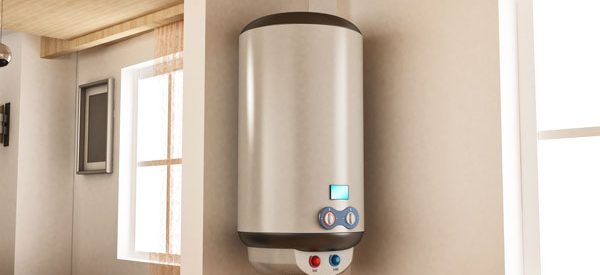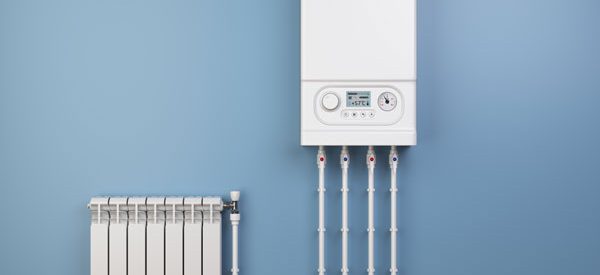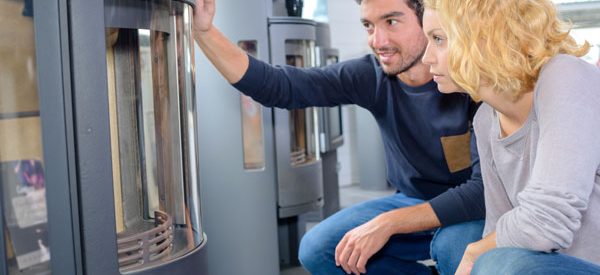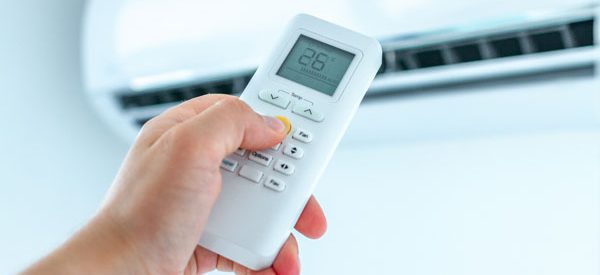


OBTAIN 3 QUOTES FOR YOUR HEAT PUMP OR AIR-CONDITIONING
Tips for HVAC system repairs & installation in Toronto

Heating, ventilation, and air-conditioning (HVAC) systems are necessary to every home in Toronto. These systems make the home more comfortable and relaxing, especially with harsh climate conditions in our part of the world.
At a time when health is a serious concern for most of us, you want to make sure that your home is a healthy environment for your family.
An essential improvement to every home is the air which is directly impacted by the quality of your home’s HVAC system. When you are shopping for an HVAC unit, you need to know important factors to consider. Below you will find very useful tips to help you make a smart decision.
As a homeowner, price, efficiency, and lifespan are your most important considerations. We can help you find the right HVAC system for your home from our top HVAC contractors in Toronto.
Tankless water heaters, air-conditioners, humidifiers, furnaces, etc.- you can find the best models from experienced and qualified HVAC providers for a safe and proper installation or repair.
Just fill out the form below and receive FREE and NO OBLIGATION quotes to choose from.
Improve your home’s energy efficiency and air quality with high-performing HVAC systems at the right price. When you work with reputable HVAC contractors in our network, you can be sure to get good value for your money.
HVAC systems affect your health, life & finances

The term HVAC pertains to machines and equipment used in homes and other buildings to maintain and regulate indoor temperature and air quality for comfort and safety. For modern homes, these functions are incorporated into one system for cooling, heating, and ventilation.
Your HVAC systems provide warmed or cooled treated air via ducts distributed around the areas in your home.
In Canada, residential energy use is largely accounted for by HVAC systems. This means that most of what you spend on your monthly energy bill is for heating and cooling. Fresh air is also very important especially in small spaces in the home that retain odor. Good thermal insulation is also essential for the HVAC system to work efficiently.
With these in mind, the devices we use to heat the home is crucial not only for comfort but also in reducing energy consumption.
The quality of air you have in the home has a huge impact on your health and comfort. The efficiency by which your HVAC performs its function directly dictates what you pay each month. If you are paying too much for your energy bills, you will be wasting thousands of dollars each year.
Replace or Repair an HVAC system

Sooner or later, a homeowner will face the inevitable choice between repair or replacement of an HVAC system. There is no fixed answer for every situation but the factors below will help you to determine your best course of action.
When should you choose to repair your HVAC system?
If you are choosing between repair and replacement, there is a very simple method of calculating the best value for your money. Consider the unit’s age versus the bill for repairs. If the cost will go beyond $5,000, it is more practical to get a replacement.
In the long run, you will be spending as much for continuous repairs and higher energy bills.
However, if your system is 5 years old or less, and performing well with occasional repairs, a replacement may not be necessary at this time.
How old is your system?
Your system’s age is critical when it comes to making decisions. Energy Star recommends that an air-conditioning system that is 10 years or more or a furnace older than 15 years should be replaced.
Is your system still safe?
When your HVAC system becomes a safety issue in the home, for instance, for carbon monoxide poisoning or fire, you must replace it immediately.
The safety of everyone in the home is second to none and the only thing that matters.
How is your system’s overall performance?
HVAC systems have significantly developed. Older systems can still work but recent digital models have more efficient features and benefits.
Modern systems allow you to control temperatures in various parts of the house for increased efficiency and savings.
Many systems also use the R-410A refrigerant which reduces environmental hazards and energy costs.
Are you ready to get a new HVAC system for your home? You will be amazed to know that credits and rebates for energy-efficiency upgrades are available in your area. Manufacturers and local utility companies offer financial incentives that can add up to thousands in savings.
The city of Toronto has energy-efficiency rebate programs for homeowners for air sealing, appliances, heat pumps, boiler and furnace improvements, etc.
The cost of HVAC systems in Toronto

Every home in Toronto needs a properly functioning furnace and air-conditioner. While you know it is a necessity, you may be worried about the cost and its effect on your bank account.
Your bill for replacing a central air-conditioning system or heating will largely depend on the type you select. If you go for a combi furnace and central air, the price will differ from a boiler and ductless air.
Let’s take a look at the prices of the different systems so you know what to expect and how to save money.
Central Air-conditioning systems
Central air-conditioning system are very popular because they are efficient and reliable. With a large compressor and a series of ducts distributed throughout the house, every room can be cooled by a single system. It allows a homeowner to control the temperature in every part of the home easily.
If you desire to install central air-conditioning, you will spend anywhere from $4,000 to $7,500. While the average price is around $5,000, the system’s model and other factors may also affect the final price.
Larger homes will also need a unit with a bigger condenser and this will cost you more.
Ductless Mini-Split System
These climate-controlled units are designed for one room at a time. They can heat and cool and operate without ducts. The cost of installing this type of system is relatively low, from $3,000 to $4,200.
Note, however, that this type of system can only heat or cool one area. If your house has multiple rooms, you will have to buy several units and extra compressors. This will bring the total cost to around $8,000 or more.
Furnace
Similar to central air-conditioning systems, furnaces use ducts and with gas or electricity, they provide hot air by blowing it through the ducts in every part of the house. An entire house can be heated with only one system.
A furnace costs less than a central air-conditioning system, with prices typically from $3,500 to over $6,000. For a large home, such as 2,000 square feet or more, you need to select a very good model. Bigger homes will mean more expensive furnace system and installation costs.
Boiler systems
A boiler system is another method for heating a home. While a furnace blows hot air into every part of the house using ducts, a boiler pushes hot water through radiators located throughout the home. Thus, a boiler system can also heat a whole house.
Boilers are more expensive than furnaces, with prices from $4,500 to $8,500.
If you have a big house, a boiler system can be quite expensive. You will require a bigger and more powerful system and install more water pipes.
For instance, it is reasonable to expect to pay around $12,500 or more for a boiler system for a home with 2,500 to 3,000 square feet.
Hot Water Heaters
You cannot have an HVAC system without a hot water heater. Nobody wants to take a cold bath in the morning. The good news is that hot water heaters are fairly inexpensive and the price will depend on the size of water heater you need based on your daily needs. Tank water heaters can cost from $2,000 to $3,000 while tankless water heaters have an average price of $3,500 to $5,000.
If you are worried about paying for the cost of an HVAC system, homeowners can get financing through credit cards, home equity loans, or even through financing programs offered by HVAC companies.
Are you interested in replacing your HVAC system and want to know the actual price?
Fill out the form on this page and receive FREE and NO OBLIGATION quotes from our reliable partners.
Our experienced HVAC partners in Toronto offer air conditioners, boilers, furnaces, hot water heaters, and ductless systems for your comfort and convenience.
Some of our partners also do emergency repairs for boilers, furnaces, and air-conditioning systems.
Boiler vs. Furnace: Which is better?

Are you wondering whether a boiler or furnace will be more suitable for your home? It is important to know the function of each when making a decision about your home’s heating system. If you are wanting to upgrade your existing heating system, your choice may also be limited to the home’s architecture.
For heating, alternatives for homeowners are boiler system or furnace. While a boiler system uses heated water and steam to distribute heat throughout the home with radiators, a furnace uses warm air and circulates it through ducts.
Boiler systems utilize natural gas, propane, or oil to heat the water but there are electric systems, too. You can also find combi-boilers which function to heat the home and provide hot water at the same time.
A furnace, also called forced-air furnace, also uses natural gas, propane, or electricity. A properly working furnace can save as much as 40% from your monthly energy bill. Hence, it is critical to make sure that you have an efficient furnace at home.
Very little maintenance is required for boiler systems and filters don’t need to be replaced so often.
Pros and Cons of boiler systems
Many people find heat from boiler systems to be more comfortable than from furnaces. Forced air-heating, if coming from a single source, can cause fluctuations in temperature.
Boilers are also more economical to operate than furnaces. Keep in mind, however, that the size, fuel type, and your usage and preferences will also affect the cost of heating your home.
Boilers don’t use air for heating your home so the air quality is better. Furnaces, on the other hand, can cause dirt, allergens, and dust.
On the other hand, boilers are more expensive to install and in case of break-downs that need repairs, parts can be more expensive than furnaces.
Top Boilers to consider: Features and Benefits
If your boiler system is no longer working properly, don’t delay and sacrifice your comfort and safety.
Get in touch with our reliable partners using our short online form to get quotes for repair or replacement of your boiler.
Below are top boiler systems to consider for your home.
NTI
This boiler system is from a Canadian manufacturer specializing in water heaters and boilers. Based in Saint John, the company has been serving Canada since 1967 and offers high-efficiency models with ratings for AFUE of as much as 95%. Their boiler models are also equipped with programmable and easy-to-use display that are convenient.
Viessmann
Based in Waterloo but manufactured in Germany, this company has over 100 years of experience. They offer high-quality combi boilers with as much as 98% AFUE ratings. Their units are quiet, easy to operate, and have designs that save on space.
Navien
A newcomer in the industry, having started in 2006, this company has quickly made a name as a reliable provider of boilers. They specialize in combi boilers for heating and hot water for the home. They are ideal for small house because of their space-saving designs. Their reliable units will keep you comfortable during those cold winters.
Pros and Cons of Furnaces for heating

Furnaces are one of the oldest heating systems for homes. If you live in an older home, you are likely to be using a furnace.
Newer furnaces run very efficiently and can convert as much as 98% of fuel into heat, thus keeping your house warm during winter. They are also typically less expensive to install than boiler systems.
They work by converting the fuel type they use into heated air, hence the name forced-air heating. The heat is distributed throughout the home through vents and ducts.
While furnaces are very effective heating systems, they also have well-known pitfalls such as dust and allergens, especially if you are using an older model. Fortunately, more recent models have solved these disadvantages with better filtering and higher energy efficiency.
Selecting the right heating system
The price of a boiler or furnace will be based on factors like efficiency rating, brand, capacity, fuel type, and features. The best way to select your home’s heating system is to compare multiple offers.
A heating system replacement or upgrade is a costly investment but it pays off in the short and long-term. Assess your needs and financing options with experienced HVAC companies serving your area.
Don’t delay and fill out our online request form today to get the latest offers with FREE and NO COMMITMENT quotes from our reliable partners!
Install Air-conditioning in Toronto at the best price

You can enjoy the summers in Toronto with efficient air-conditioning systems for a comfortable, healthy, and energy-efficient home.
In Toronto, our reliable partners offer ductless air-conditioning systems and central air-conditioning systems to suit your needs and budget.
Ductless split air-conditioners
Ductless split air-conditioners are wall-mounted to cool specific rooms in the home without any ductwork. They are ideal for older Toronto homes with baseboard heaters or radiators and are preferred by landlords who need to cool multiple apartments.
These systems are economical to use for small homes. Some of the leading brands for ductless systems are Mr. Slim, Fujitsu, Daikin, and Mitsubishi.
The cost of ductless split systems in Ontario ranges from $2,800 to $3,500 with installation. The prices can vary depending on the brand, rating, and your choice of installer.
Central air-conditioning system installation
Central air-conditioners remove humidity and cool homes with cool air circulated using ducts. When shopping for your system, keep in mind that the SEER rating indicates its efficiency.
High-rise condos usually use central air-conditioning systems for increased efficiency and comfort.
In Ontario, the average price of a central air-conditioning system ranges from $4,000 to $6,500 with standard installation.
When to replace an HVAC system in Toronto

Certain signs will show that you need to think about replacing your cooling or heating system as soon as possible.
While the age of the system is definitely an indicator, other tell-tale signs can also tell you to act soon. Below you will see what warning signs to watch out for.
A heat pump or air-conditioner that is over 10 years old should be replaced. You can benefit from as much as 20% in energy savings when you upgrade to more efficient units.
For boilers or furnaces, consider a replacement when it is 15 years or older. You can benefit by as much as 15% on an Energy Star qualified furnace compared to a conventional furnace.
Warning signs of HVAC systems
Consider upgrading to a new HVAC system if you are experiencing any of the following warning signs:
- Frequent repairs and increasing energy bills.
The cost of frequent repairs and increasing energy bills can put a dent on your budget. If you see yourself calling a technician more often, it is more practical to replace your existing system.
- Rooms in the home too cold or hot.
If your home is too cold or hot, there may be issues with the insulation, ductwork, or proper functioning of the system.
- Humidity problems.
Is your house humid in the summer or dry in the winter? Inadequate equipment, leaks, or other issues could be causing the problem.
- Noisy operation.
An HVAC system is not supposed to be noisy. If you hear strange sounds coming from your air-conditioning system, it may be time for a professional evaluation.
- More dust than usual.
If you see excessive dust in the home, there could be an issue with the ducts. A qualified professional can assess your system and provide tailored recommendations.
Get expert advice from experienced HVAC professionals in our network and make your home more comfortable and healthier for your family.
Compare Prices & HVAC Contractors in Toronto
Poor indoor air quality can affect your health. Long-term exposure can lead to serious respiratory and heart conditions.
The quality of the air in your home can be improved by high-efficiency HVAC systems. These systems also adjust the temperature in your home for your comfort and health.
Using an aging system can also lead to huge spikes in your monthly energy bill. It is best to save money in the long-term and enjoy a comfortable and healthy environment.
Invest in a high-quality HVAC system for your home from our reliable partners that offer:
- Furnaces
- Heat pumps
- Air-conditioning systems
- Hot water heaters
- And more!
Further, investing in a good HVAC system also increases the value of your property so it will be money well-spent.
Fill out the form below to get the best quotes for your HVAC system with no obligation! Compare multiple offers and save time and money.
Comments are closed.



OBTAIN 3 QUOTES FOR YOUR HEAT PUMP OR AIR-CONDITIONING
Copyright© 2026 Compare Home Quotes.
Oolong Media






